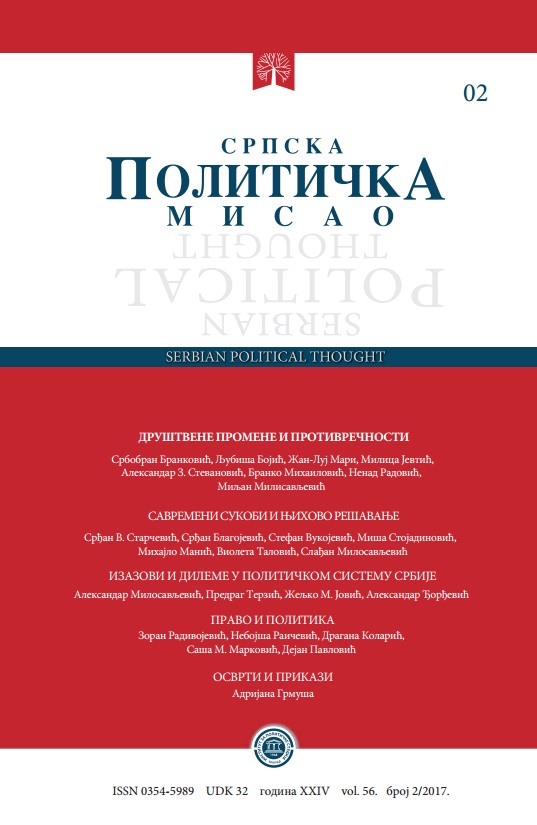Енергетска безбедност Косова и Метохије
Energy Security of Kosovo and Metohija
Author(s): Željko JovićSubject(s): Energy and Environmental Studies, Governance, International relations/trade, Political economy
Published by: Институт за политичке студије
Keywords: Kosovo and Metohija; energy security; oil; gas; renewable energy sources
Summary/Abstract: It is beyond doubt that the area of Kosovo and Metohija abounds in certain important energy resources, notably, the lignite and, to a lesser extent, hydroelectric power. On the other hand, there is no oil, and the gas infrastructure is in very early stages of development. Any effort to compensate for this lack of oil and gas, and/or counter the adverse impact that the coal usage has on the environment, both of which could be ensured by switching to the renewable energy sources (primarily, solar, but also the wind power, hydropower, biomass and waste) is still in a distant future. The Republic of Serbia should focus its full attention on the energy security of Kosovo and Metohija, not only because this is a part of its territory which it legitimately considers its own, but also mindful of the background of complex inter-ethnic relations between the Serbs and Albanians, the presence of two system, Serbian and Albanian – the latter supported by a portion of influential international subjects – as well as of the fact that energy security of Kosovo and Metohija can significantly affect the energy security of the Republic of Serbia, both positively and adversely. Despite the many unresolved questions and controversies, stemming from the diametrically opposed views held by Belgrade and Pristina on the issue of the status of Kosovo and Metohija, which certainly neither side would be willing to modify in the foreseeable future, it can be concluded that there is room for joint action taking. The very position of Kosovo and Metohija (both geographic and strategic) carries great regional importance, given the unequivocal commitment of all countries in the region to acceding the European Union. One of the preconditions for this is integrating within the EU energy sector, which certainly holds a great advantage in these obscure times of energy resource shortages, coupled with constant threats of disrupting of stable energy supply and the variability of energy prices, all a ramification of political upheavals in certain important parts of the world, especially those rich in energy resources. Gasification of the region is a necessity and a basic need. It is quite certain that all countries in the region, including the Republic of Serbia, will be a part of a single gas market, and that this will happen in the near and foreseeable future. Whether, by some miracle, construction of the “South Stream” would continue, or whether its function would be achieved through another pipeline (e.g. the “Turkish Stream”) is less important. What is certain is that one of the major gas pipelines would reach the Balkans, and pass through some of the Balkans countries while avoiding others. However, it is likely that all will be able to connect directly, or indirectly, provided they rely on the smart energy policies, ensure timely construction of the necessary infrastructure and a timely implementation of the interconnector project,38) all for the purpose of achieving a higher level of energy security. The energy ties between Central Serbia and Kosovo and Metohija are as self-evident as our shared future. It is up to us to decide how we intend to build this future. Would it be through strife and instability, inevitably following in the wake of every conflict, or through cooperation and at least a minimum of understanding for the shared interest, putting aside our differences, including even our divergent positions on the status of Kosovo and Metohija?
Journal: Српска политичка мисао
- Issue Year: 2017
- Issue No: 2
- Page Range: 209-224
- Page Count: 16
- Language: Serbian

